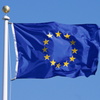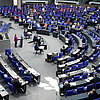A Milestone for strengthening Global Health
G20 Leaders' Declaration "Shaping a networked world"
Towards the health policy agreements of the final declaration of the G20 summit "Shaping a networked world", Federal Minister of Health Hermann Gröhe proclaimed:
"The meeting of the G20 states under the German Presidency has set a milestone for strengthening global health. For the first time, the G20 jointly take responsibility for global health: they are jointly promoting the strengthening of the World Health Organization and the development of a strong national health care system. They support the development of national action plans for the responsible use of antibiotics in humans, animals and the environment, and seek closer cooperation in research and development. The agreements show that those who want to protect the health of their populations effectively should not be cut off, but must work together more internationally."
The heads of state and government of the G20 underlined their joint final declaration of "Shaping an interconnected world", highlighting the important results of the G20 health ministry meeting in Berlin at the end of May, which the Federal Ministry of Health had organized.
They point to the crisis stimulus exercise of the G20 health ministers and emphasize the need for international cooperation. They call on the United Nations to continue to place great emphasis on global health on the political agenda. The G20 supports WHO's central co-ordination role, in particular in setting up relief measures and responding to health crises. They support the WHO's reforms on how to deal with international emergencies, and are committed to providing WHO with financial and sustainable funding for these programs.
During his remarks to G20 leaders, WHO Director-General, Dr Tedros Adhanom Ghebreyesus, reinforced the need for coordinated global response , “pandemics of infectious diseases and other threats to health, such as anti-microbial resistance, transcend borders and national interests, so vulnerability for one is vulnerability for all of us.” In addition, it is necessary to prepare the research and development sector better on health crises. Examples of this are internationally coordinated programs such as the R & D Blaupause of the WHO and the Coalition for Innovations in Epidemiological Care (CEPI). The G20 heads of state and government refer to the importance of international health regulations. The eradication of child paralysis worldwide is called a common goal.
The G20 emphasize that antimicrobial resistance is an increasing threat to public health and economic growth. They have agreed to promote the responsible use of antibiotics in all areas and strive to limit their use in animal medicine solely for therapeutic purposes. The G20 heads of state and government stress that treatments should be subject to prescription. At the same time, the G20 aims to raise public awareness, strengthen prevention and control, and improve understanding of the issue of antibiotics in the environment. They agree to promote access to affordable high-quality antibiotics, vaccines and diagnostics. They emphasize the need to promote research and development in order to fight dangerous pathogens such as those of tuberculosis.
In order to maximize the impact of existing and new initiatives in basic antimicrobial and clinical research and product development, the G20 is calling for a new international platform for collaboration in the field of research and development of new antibiotics.
Additional information
-
G20 Health
Overview on health-related topics and events during the German G20 Presidency; e.g. the G20 Health Ministers' Meeting
































